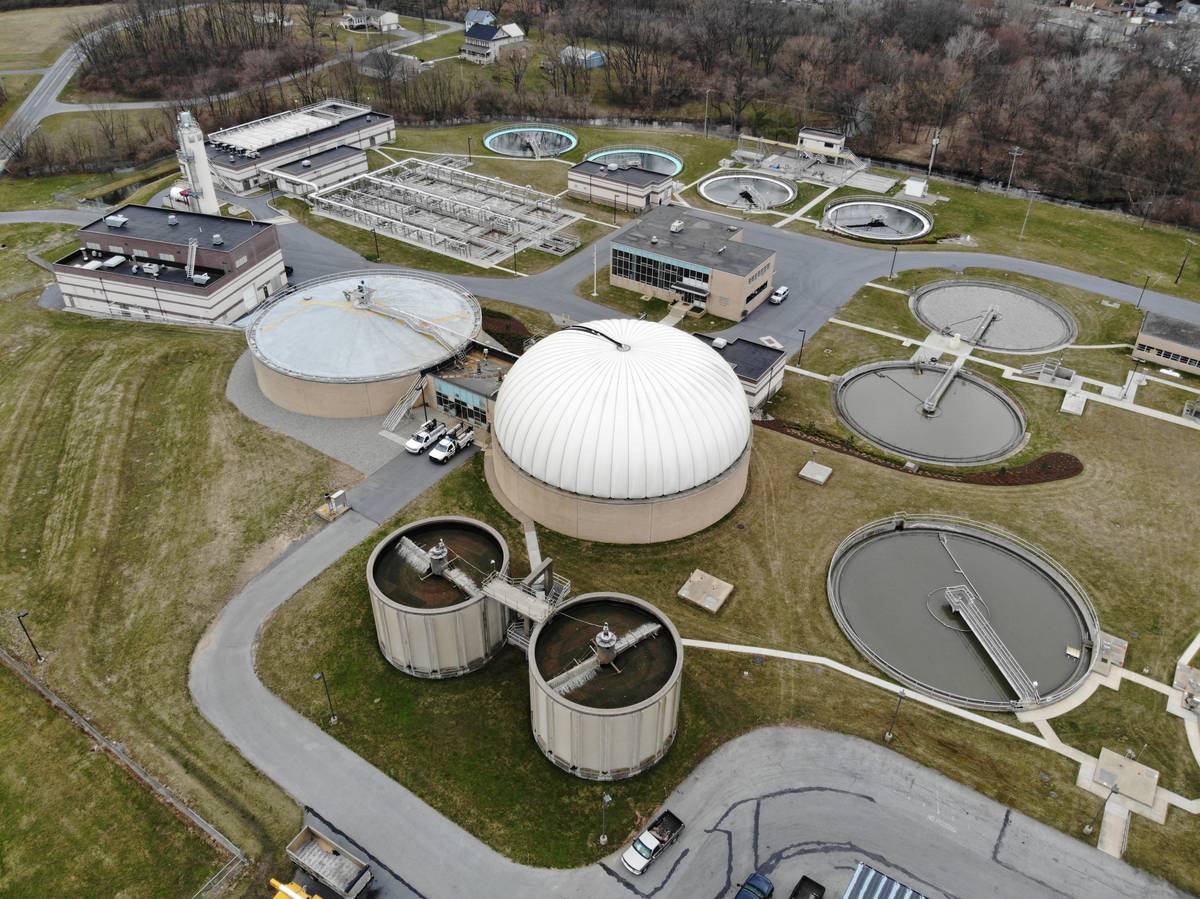This article was funded by LebTown donors as part of our Civic Impact Reporting Project.
The City of Lebanon Authority (COLA) is looking to change how it charges industries that contribute higher concentrations of organic and inorganic matter into the waste stream than domestic or residential users.
Read More: COLA considers new rates, regulations for ‘consumptive use’ water customers
A resolution to recalculate the surcharge based on treatment costs was approved Monday, Aug. 12, by COLA’s board. The industries to be affected as well as the municipalities served by COLA’s wastewater treatment facility have 90 days to review and comment on the proposed change.
“These customers already get a sewer charge based on gallons of sewer they send us,” said COLA executive director Jon Beers. “This is a surcharge on top of that to treat the high strength pollution in their waste and is based on our budget and what is costs to treat their waste.”
Adoption of the resolution could occur at the board’s Nov. 12 meeting, with the new rates effective Jan. 1, 2025.
COLA’s surcharge for high strength waste will be based on four waste products that the industries contribute as part of their operations. The four are nitrogen, phosphorous, suspended solids (or organic and inorganic materials that take longer to break down) and biochemical oxygen demand (or BOD, the amount of oxygen consumed by bacteria to reduce waste).
Treatment of each of those four and the costs of those treatments differ. Treating for phosphorous costs $21,000 per 1,000 pounds while the cost of treating for BOD is about $300 per 1,000 pounds, said Cora Shenk, authority compliance and lab manager.
Fewer than a handful of industries would be affected by the new surcharge, three of which would see an increased surcharge. Godshall’s Quality Meats and the Greater Lebanon Refuse Authority would have increases of 39.6 percent and 20.6 percent, respectively, as both contribute high concentrations of nitrogen to wastewater. Dean Foods would have a 2.8-percent increase.
COLA’s permit issued by the state Department of Environmental Protection sets limits for what can be discharged into surface waters. The wastewater treatment plant is approaching its limit on the amount of nitrogen it is permitted to discharge into the Quittapahilla Creek, Beers told the board in July.
Besides the four components, COLA has mandated concentration limits on metals such as arsenic, mercury and lead.
In other business, Beers reported that Fort Indiantown Gap has expressed an interest in having an agreement with COLA for water for 500,000 gallons a day, Beers said. COLA currently provides water to the Gap but without a set limit.
“The agreement will spell out that if they need or use more, they have to buy capacity,” Beers said.
Beers also told the board he will meet again with the state Department of Environmental Protection to discuss COLA’s application for a new supply and allocation permit. COLA’s permit to draw water from the Siegrist Reservoir and Swatara Creek expired in 2019.
The City of Lebanon Authority Board meets at 2311 Ridgeview Road, Lebanon, on the second Monday of each month at 3 p.m. The next meeting will be Monday, Sept. 9. These meetings are open to the public and do not require registration.
Questions about this story? Suggestions for a future LebTown article? Reach our newsroom using this contact form and we’ll do our best to get back to you.

Keep local news strong.
Cancel anytime.
Monthly Subscription
🌟 Annual Subscription
- Still no paywall!
- Fewer ads
- Exclusive events and emails
- All monthly benefits
- Most popular option
- Make a bigger impact
Already a member? Log in here to hide these messages
You know us because we live here too. LebTown’s credibility comes from showing up, listening, and reporting on Lebanon County with care and accuracy. Support your neighbors in the newsroom with a monthly or annual membership, or make a one-time contribution. Cancel anytime.
























